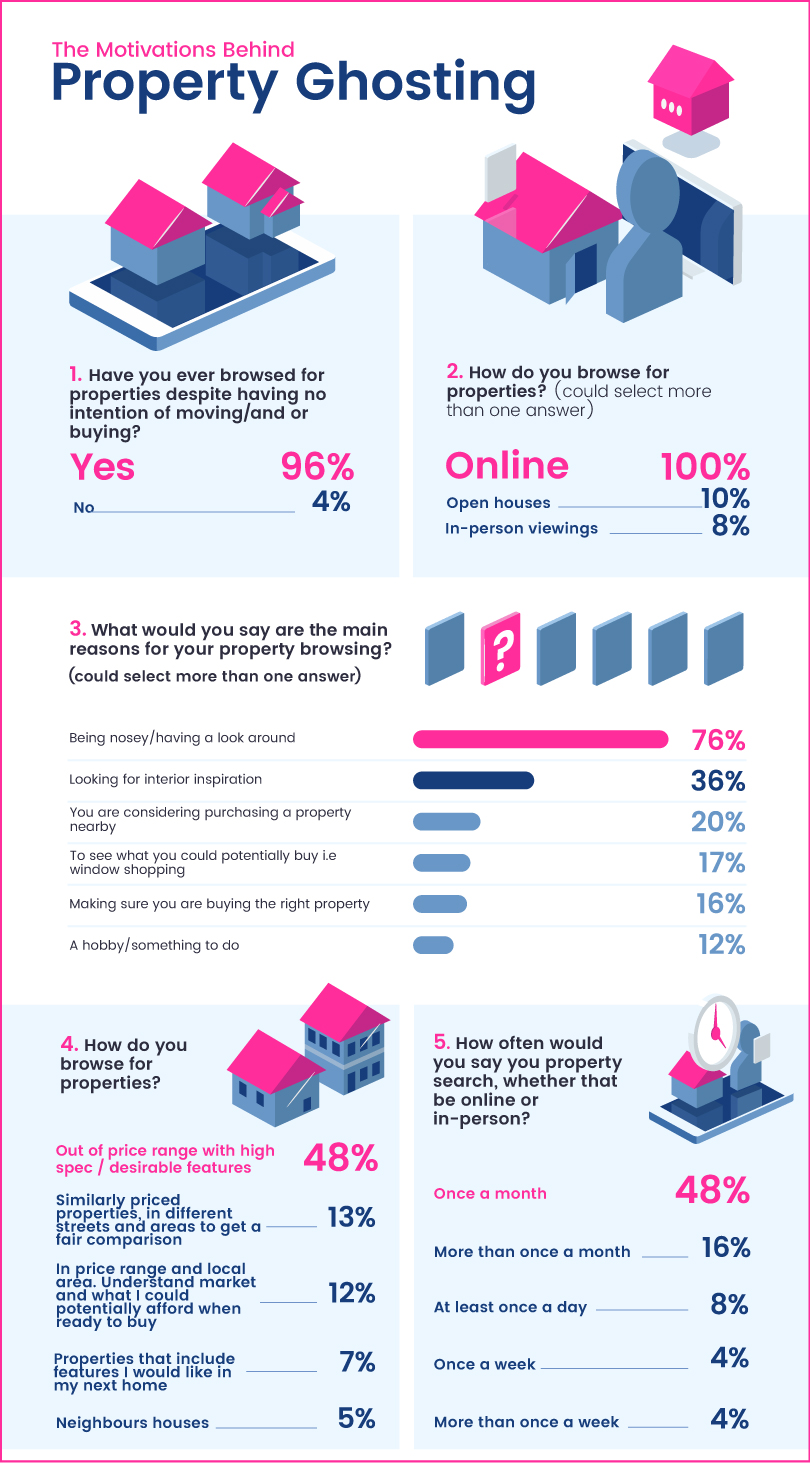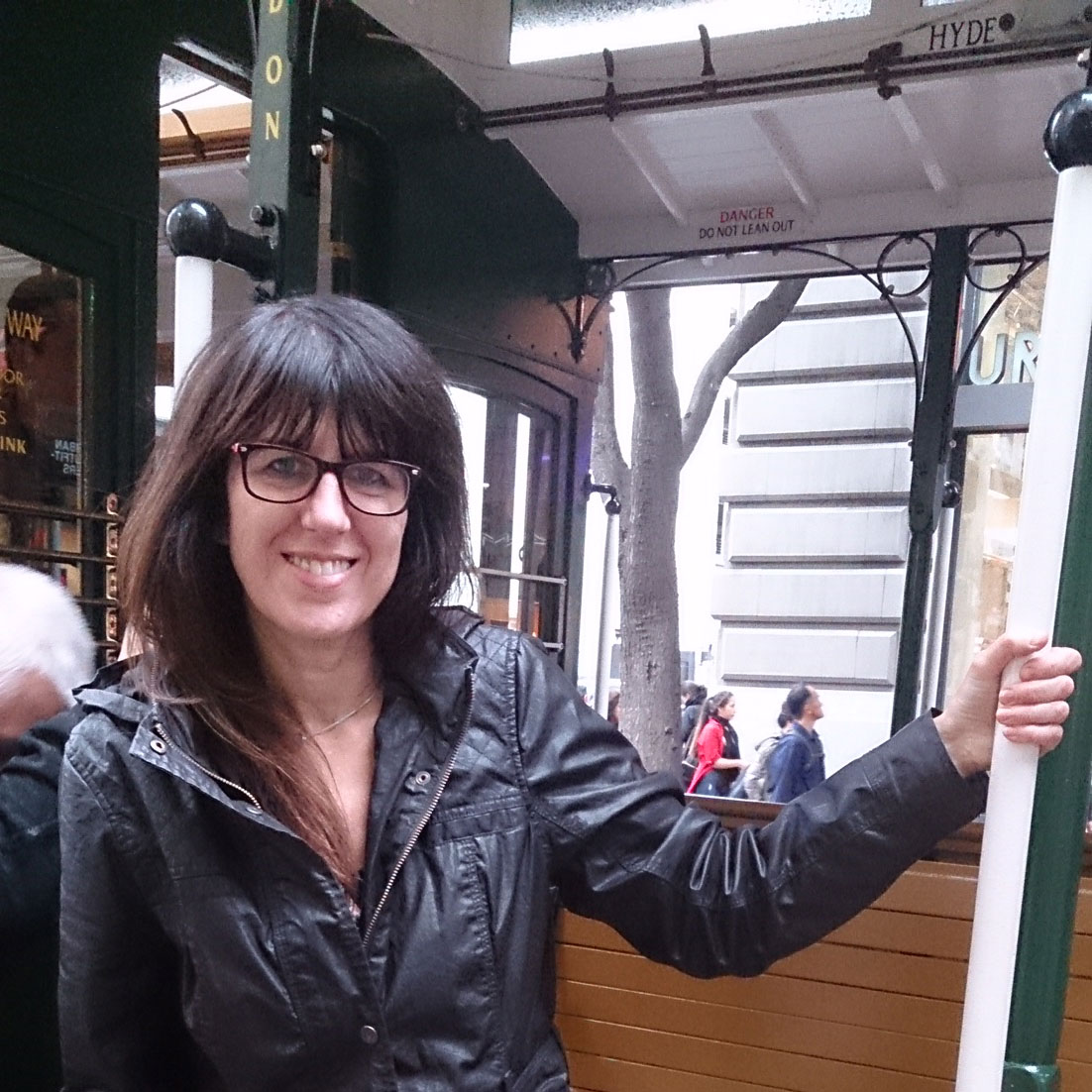Beware the property ghosters
Property ghosting is the new scourge for estate agents – these are fairweather 'buyers' who waste sellers' time. Have you fallen victim? Or are you a property ghost?


Who doesn’t love a nosey round properties for sale? A chance to check up on what the neighbours are asking for their home (and whether yours might be worth the same, or more), and their suspect decorating choices.
Or maybe you dream of moving to somewhere bigger/nicer/abroad, just as soon as your raise comes in or your lottery numbers come up?
Apparently 96 per cent of us are busy browsing the internet looking for properties with no real intention of actually moving or buying, according to research carried out for commercial estate agents Savoy Stewart. And we do it pretty regularly – 48 per cent of those asked confessed to window shopping for a new home at least once a month.
But a new term has been coined for those who go a bit beyond casually clicking property sites on the internet – property ghosting. It’s inspired by the phrase ghosting, more often used in relationships, which describes someone cutting off all communication with an ex partner, friend or even relative without any warning or explanation.
Property ghosters show an interest in a house or flat, then once the estate agent, vendor or seller is hooked, they just stop talking to or messaging them.
Savoy Stewart say there are clues to spot the ‘buyers’ who are going to get spooked and suddenly stop pursuing the property.
1. They don’t want to give out multiple points of contact, like mobile, home, office number or email address.
Get small space home decor ideas, celeb inspiration, DIY tips and more, straight to your inbox!
2. They don’t really know what they’re looking for when asked qualifying questions, such as budget, likes/dislikes, building preference, must-have features.
3. They get offended when asked personal questions, like whether they are a working professional or a student.

A negotiator for London-based estate agency Winkworth says the best way to handle the annoyance of potential property ghosters was by treating them as if they were real buyer: ‘As long as you follow the protocol and ensure you’ve asked the qualifying questions, it tends to make it clear who is serious about looking and who is purely window shopping.
‘After being “ghosted”, the best thing I’ve found is trying to touch base once a week directly after the date of their enquiry or viewing. After that, we’ll send them a courtesy email or call at the six month mark but then they’ll be archived.’
For the rest of us curious cats, we like to do our browsing anonymously on the internet, where we can idly poke around properties on screen without getting the agents'/sellers' hopes up.
A few (10 per cent) go so far as to attend open houses or arrange viewings (eight per cent) even though they have no intention of purchasing.
The overwhelming reason people like to look (76 per cent) is simply to be nosey. Thirty-six per cent said they are seeking interiors inspiration.
There are also a fair number of dreamers whiling away a few hours on property websites – nearly half of us (48 per cent) admitted to looking for homes out of our price range with high spec, desirable features, such as a swimming pool or home gym. Or scouting houses that used to be owned by a celebrity.
Well, if you're going to property ghost, you might as well do it in style...

Alison is Assistant Editor on Real Homes magazine. She previously worked on national newspapers, in later years as a film critic and has also written on property, fashion and lifestyle. Having recently purchased a Victorian property in severe need of some updating, much of her time is spent solving the usual issues renovators encounter.